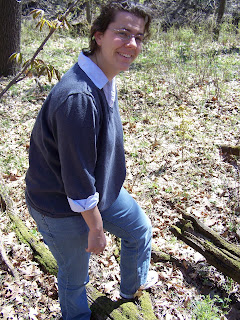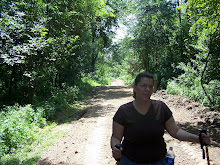 It is hard to imagine that two years ago I had never heard the term Battery Cage. That I had never really thought about where my eggs come from. That I had never even really thought about the chicken that I ate. Some would say that I was blissfully ignorant but I find my lack of information incredulous. How was it possible for me to not know how my food was produced? But that was the case. Over the last year and a half I have learned perhaps far more than I ever cared to know. I have learned enough that I plan to never eat meat again. I have learned enough that I'm actively contemplating becoming vegan. And they say that a mind, once expanded, can never return to its original size. I cannot unlearn what I have learned. Nor do I want to.
It is hard to imagine that two years ago I had never heard the term Battery Cage. That I had never really thought about where my eggs come from. That I had never even really thought about the chicken that I ate. Some would say that I was blissfully ignorant but I find my lack of information incredulous. How was it possible for me to not know how my food was produced? But that was the case. Over the last year and a half I have learned perhaps far more than I ever cared to know. I have learned enough that I plan to never eat meat again. I have learned enough that I'm actively contemplating becoming vegan. And they say that a mind, once expanded, can never return to its original size. I cannot unlearn what I have learned. Nor do I want to.Over the last year and a half I have read everything I can find on food production, with a focus on animal production. Jonathan Safran Foer's newly released book "Eating Animals" immediately jumped to the top of my list when I heard about it. I asked for the book for my birthday and finally sat down to read it over Thanksgiving. This had to be one of the toughest books I've ever read about any topic. I've read war stories that didn't affect me as much as this very true story of systematic torture. I broke down halfway through and had to put the book down for a while. I've always been sensitive to animal suffering but knowing that this is all true and that this is how the industry is trending makes me angry, disgusted, and sad at the same time.
Foer starts out with a tongue in cheek discussion of eating dog. His arguement is that with dogs we would have a steady stream of good tasty meat. Dogs are plentiful and eaten around the world. And by now you are starting to get angry. We can't eat dogs. We don't eat companion animals. I've mentioned before that companion animals actually have a pretty good life in the US, certainly compared to farm animals. Foer states that pigs are just as smart as dogs, just as loyal. Yet the dogs we invite into our families. The pigs we keep in horrible conditions and slaughter in terrible ways. And pigs have it far better then our feathered friends. Chickens, whether kept for eggs or for meat, are some of the most tortured creatures on the planet. Both their lives and their deaths would make most horror films look tame. And this happens to hundreds of millions of birds every year. And chickens, like dogs, are playful, curious, and social.
Foer tells stories of both animal lives and animal deaths and all are enough to make you ill. He also gives the opposition a chance to speak. His book includes letters from cattle ranchers, factory farmers, along with the more expected letters from animal welfare activists and PETA. The only one he doesn't represent is the Agribusiness executives, mostly because they refused to answer his letters, request for tours, or even inquiries. As Foer points out, shouldn't we get a chance to see where our food comes from. We used to be able to but now that factory farming has become dominant, that is no longer the case. Mostly because the more we know about where our meat comes from and how the animals were treated, the less likely we would be to eat it.
I won't apologize for sounding preachy here. This is something that I feel incredibly strongly about. Although I won't attempt to convert anyone to vegetarianism, I do ask that you think about where your food came from. And think about what animal made that meal possible. Although I will not eat meat again, if the industry does return to more humane lives for its animals I won't begrudge someone for eating it. But with the current state of factory farming, meat production (along with dairy and eggs) is nothing short of torture. And that I can't have on my conscience. I'm currently a vegetarian but after reading this I'm heading towards vegan. I'm also planning other life changes. I won't say this is all because of this book, but the more I read, the more sickened I am. And what I have learned, cannot be unlearned.


 Galveston after the hurricane
Galveston after the hurricane









 If you haven't been bombarded with Sesame Street stuff enough recently, here is just one more tribute to the program that most of us grew up loving. Sesame Street turns 40 next week and the tributes have been popping up everywhere. Google's most recent
If you haven't been bombarded with Sesame Street stuff enough recently, here is just one more tribute to the program that most of us grew up loving. Sesame Street turns 40 next week and the tributes have been popping up everywhere. Google's most recent 



